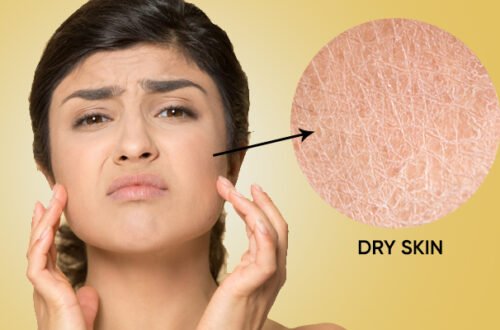In the ever-evolving world of skincare, natural ingredients have seen a remarkable rise in popularity. From centuries-old herbal remedies to modern formulations using plant-based extracts, consumers are becoming more aware of what they put on their skin. However, with this surge in interest comes a fair share of misinformation. While some natural ingredients offer undeniable benefits, others are surrounded by myths that can mislead even the most health-conscious individuals. Understanding the truth behind these common misconceptions is essential for making informed skincare decisions and for choosing reliable sources like an Aloe Vera Gel Exporter in India that ensures product integrity.
Myth 1: Natural Means Hypoallergenic
Fact: One of the most widespread myths is that all-natural skincare products are automatically safe for everyone. In reality, many natural ingredients can cause allergic reactions, especially in sensitive individuals. For instance, essential oils such as tea tree or lavender may trigger skin irritation or rashes. Natural does not equal allergy-free. It’s always recommended to do a patch test before using any new product, regardless of whether it’s synthetic or natural.
Myth 2: Chemical-Free Means Safer
Fact: The term “chemical-free” is often used in marketing to imply safety, but everything we use is composed of chemicals — even water and oxygen. The concern should not be about whether an ingredient is a chemical, but about its effect on your skin. Natural skincare should focus on using ingredients that are non-toxic and beneficial, not simply avoiding anything labeled as a chemical. Many plant-based formulations undergo chemical processes to stabilize or preserve them, which is essential for safety and shelf life.
Myth 3: All Natural Oils Are Good for Your Skin
Fact: While natural oils like jojoba, almond, and rosehip are widely recognized for their skincare benefits, not all oils are created equal. Some oils are comedogenic, meaning they can clog pores and lead to breakouts, especially for those with acne-prone skin. Coconut oil, although celebrated for its moisturizing properties, can be too heavy for certain skin types. Understanding your skin type and choosing oils accordingly is more beneficial than blindly following trends.
Myth 4: DIY Natural Skincare Is Always Effective
Fact: There’s a growing interest in DIY skincare using natural ingredients from the kitchen, such as lemon juice, baking soda, or apple cider vinegar. While these might appear harmless, their improper use can damage your skin’s natural barrier. For instance, lemon juice can disrupt pH levels and increase sensitivity to sunlight, leading to pigmentation or burns. Trusted brands that specialize in Natural Hair Color manufacture in india invest heavily in research and formulation to balance efficacy with safety — something homemade recipes often lack.
Myth 5: If It’s Organic, It Must Be Better
Fact: Organic ingredients do have their advantages, such as being free from pesticides and synthetic fertilizers, but this does not automatically make them superior in every context. Organic skincare products can still cause reactions, be ineffective for certain concerns, or be poorly formulated. The key lies in understanding how ingredients work together, not just how they were grown. Moreover, not all products claiming to be organic are certified, making it essential to verify certifications and brand credibility.
Myth 6: Herbal Ingredients Work Immediately
Fact: Many users expect instant results from natural or herbal skincare, but nature doesn’t always work that fast. Herbal remedies often require consistent use over time to show results. Unlike chemical treatments that might provide quick fixes, herbal ingredients tend to support the skin’s natural processes gradually. Companies involved in India Herbal Products Manufacture in india understand this balance, ensuring that their products deliver sustainable long-term benefits rather than superficial quick results.
Myth 7: The More Natural Ingredients, The Better
Fact: Formulating skincare products with too many natural ingredients doesn’t guarantee effectiveness. In fact, overloading a product with various extracts can increase the risk of irritation or make it harder to determine which ingredient works for your skin. A well-formulated product with a few high-quality natural ingredients is often more effective and safer than one crammed with every plant extract under the sun.
Myth 8: Natural Preservatives Are Always Sufficient
Fact: Without preservatives, any product — natural or not — becomes a breeding ground for bacteria and mold. While natural preservatives like rosemary extract or vitamin E can provide some protection, they are often not sufficient for long-term preservation. Reputable manufacturers use a combination of safe, approved preservatives that ensure product stability while maintaining a clean label.
Conclusion: Knowledge Is Key in Natural Skincare
The rise in popularity of natural skincare is a positive shift toward healthier living, but it requires informed choices. Blindly trusting anything labeled “natural” without examining the ingredients, formulations, and source can do more harm than good. It’s crucial to base your skincare routine on well-researched facts and to buy from brands that demonstrate transparency and expertise in their formulations.
Choosing the right supplier or manufacturer plays a pivotal role in product quality. Whether it’s selecting an Aloe Vera Gel Exporter in India, a Natural Hair Color manufacture in india, or an India Herbal Products Manufacture in india, ensure that you’re partnering with a company that values safety, efficacy, and authenticity.




